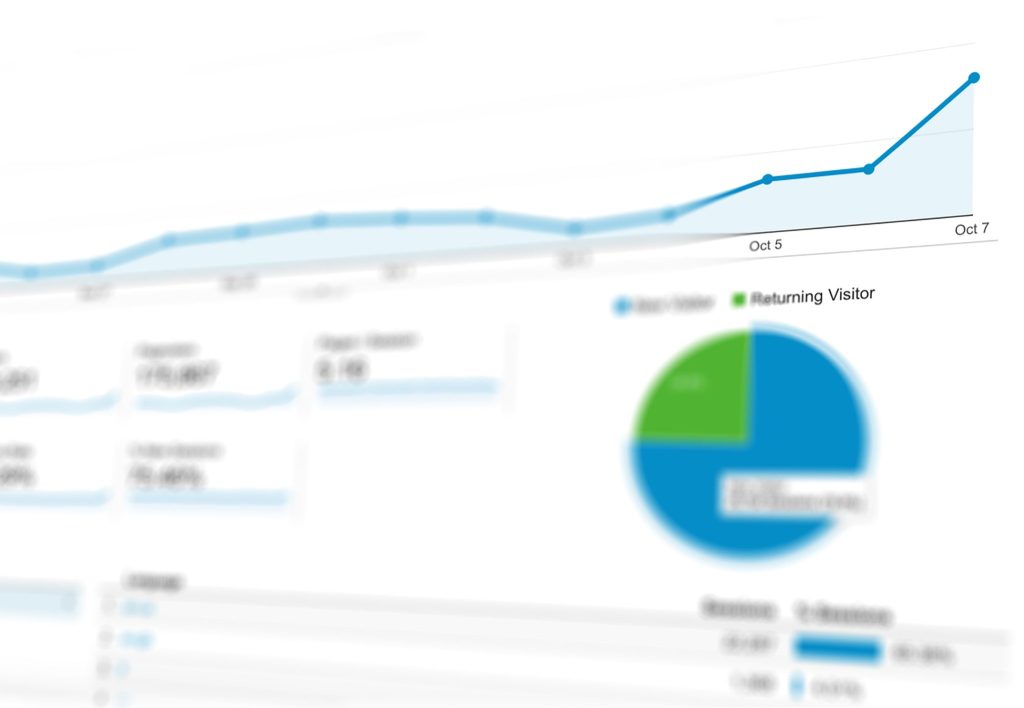Understanding how SEO works is meaningless if you do not also understand if it’s working. Marketers and businesses should always pay close attention to the effects of their SEO work in order to perfect their approach and drive valuable results. This is where metrics come in. Yes, they may seem boring at first, kind of like Times New Roman or Morrissey fans. But trust us, SEO reporting metrics are your friends. They help us understand the impact of our efforts.But how exactly should you go about effectively measuring the success of an SEO campaign? What are the signs that your SEO is going well and which signs should you focus on the most? As we’ve previously discussed on our blog, looking solely towards keyword rankings as the be-all-end-all of SEO success can distract from the more concrete results demonstrated by CTRs, bounce rates, organic traffic, and (the number one priority) conversions. In other words, the key to tracking the progress and success of your SEO is implementing a cohesive system that draws from numerous metrics. This helps to build a more robust picture of your results – one that accounts for every facet of your SEO work, from rankings in SERPs and organic traffic, to onsite performance and backlinks.
So what is a metric?
For those who are completely uninitiated, it might be worth explaining what a metric actually is. At bottom, a metric is a way of measuring things, just like how time is a way of measuring speed and inches are a way of measuring length. But metrics don’t just apply to the physical world: they are also used to track and assess the status of a given business process. In our case, these processes include website performance, user behaviour, return on investment, and so on.Although metrics are by their very nature quantifiable (with numbers, percentages, graphs, etc.), they ultimately give a concrete and reliable idea of how a business is performing. As a result, you can look at metrics as a measurement of the success of your SEO efforts as a whole (although there are some which you can take with a pinch of salt). As we will see in a minute, the SEO reporting metrics you should be tracking involve many factors, values, and datasets. There are also many tools available that provide detailed and accurate reports on your SEO efforts. Not all of them are free, but you can glean more than enough valuable data using free tools (namely, Google Analytics and Google Search Console). Whichever tools you wind up using, you will always be looking at how users discover, interact, respond, and engage with your site (both onsite and offsite).We know, at this point you might still be scratching your head and thinking…And… what’s the point exactly?
Metrics can get complicated, we don’t deny that. It takes a lot of experience to understand how and when is best to use certain metrics. This might be because the real point of metrics depends largely on the circumstances. Specifically: what is the nature and aim of the business? What does the business expect to get from “doing SEO”? These are questions you must ask yourself before you begin tracking, analyzing, and reporting the tangible results of your SEO.That is to say, you shouldn’t just be mindlessly following a bunch of metrics for the sake of it. The metrics you choose to focus on need to be valuable. They should accurately reflect the progress of your SEO. They should be in line with the wider goals of your SEO campaign, whether that’s authority, user and usage data, reputation, influence, or sales (just bear in mind that the majority of metrics will not bear a one-to-one correlation with your bottom line, SEO requires a more holistic view than that).But fundamentally, whatever your aims, metrics help you understand how your website is doing. The data will help you figure out what works and what doesn’t: which content chimes with users, which pages capture more traffic, or which CTA buttons are calling the most action, for example. Every website has parts that require improvement and could be performing better, as well as elements that are performing great and could be repeated and capitalised upon. Likewise, certain metrics (e.g. popular landing pages) will help you to understand your user base better: what they search for, what they are looking for, what they click on, and what they like to read. Clearly, it’s not just about sitting back and watching your performance metrics tick along before putting all the data in a report. It’s about using the data to your advantage. Don’t just look, act! Indeed, if you play your cards right, working with metrics can be an incredibly rewarding job.One more thing before we look at some of the best SEO metrics for your personal arsenal: please remember that performance metrics are only a very small part of the SEO equation! There’s a lot more to it. You can track all the metrics in the world in a timely and efficient way; you can use an array of different tools in the process; you can churn out reports that feature pretty graphics and lots of numbers. But ultimately, if the strategy and execution is not top notch (hint: maybe soak up our SEO Glossary and blog posts if this is the case), then don’t expect to see those metrics actually do anything impressive. Data is a popular subject at the moment and it can of course offer genuine value. However, some teams get to a point where they are collecting data for the sake of collecting data, therefore spending more time looking at numbers than completing tasks to improve these numbers. If this rings a bell, it’s time to change tack! Okay, okay, now onto the meaty stuff…The most important SEO reporting metrics
There are certain metrics that SEOs, marketers, business owners, and even casual webmasters should know inside out in order to keep track of their website. If you choose the right metrics, you will be able to not only focus on a specific set of results but also better understand the performance and success of your website as a whole. The insights gleaned from such metrics are actionable and (if you have the right approach) can be used to improve your SEO campaign. As stated above, metrics are disposable. As opposed to taking every single metric into account, you should pick and choose those most relevant to your company aims and your bottom line. This will help you streamline your analytical approach. Big numbers and complex jargon aside, it’s all pretty intuitive in the end. We promise.What follows are some of the most important metrics that we have used to monitor and enhance our SEO campaigns in the past. We could write an entire article on each one of these metrics that go into the finer details of how they can be used and to what effect. But for now we’ll be sticking to a quick overview just so you know which metrics can have value for SEO.Rankings
Your rankings illustrate just how visible your website is to users by telling you how high up the search engine results pages (SERPs) certain web pages are shown. If your pages rank highly, more users will be exposed to your site and thus be more likely to click through and convert. Rankings exist in relation to specific keywords (or ‘search queries’ from the user’s perspective) which are usually targeted by the particular pages on a website. If a website features on the first page of SERPs for a number of relevant and valuable keywords then it will receive a larger amount of quality organic traffic as a result. Think about it, how often do you venture into the barren lands past the first page of search results? Hint: less than 1% of you do.Most worthwhile SEO tools give you the ability to track the ranking of your website according to your selection of target keywords. This data helps build up an overarching picture of a website’s search visibility and average keyword ranking. While rankings are a good metric for illustrating the performance of a website and its individual pages in search engines, they are not definitive. What matters most is the effect that such rankings have on the other metrics detailed below.Organic traffic
Traffic metrics give an idea of how many users are visiting your site, where they’re coming from, which search terms they’re using to find your site, and which pages they’re visiting most. Ultimately, they give a very solid indication of your SEO performance on the whole. After all, increased rankings are pointless if they do not result in a corresponding increase in traffic. ‘Organic traffic’ is the traffic gained naturally via search engines (as opposed to paid traffic, direct traffic, or referral traffic). Google Analytics is the preferred tool for tracking organic traffic (in all its forms), allowing you to filter the metric by source, location, keyword, and landing page.If your SEO efforts are paying off you should not only be seeing an increase in organic traffic, but also an increased portion of your overall traffic coming from organic search. Furthermore, looking at your organic by landing page and keyword will help you understand where your strategy is working best and which niches you should be targeting more.Finally, and this is where SEO reporting metrics are often used in conjunction with each other: use tools such as Google’s Keyword Planner to understand if your target keywords are actually utilised by searchers. Ranking 1st for an obscure and potentially irrelevant search term with less than 10 searches a month is unlikely to provide the results that you are looking for from an SEO campaign.Conversions
We like to think of conversions as the end goal of any SEO campaign. Increased traffic is great, it means that people are visiting your website more and that your SEO strategy is working. However, getting users to visit your website does not necessarily mean they are converting. That takes a little extra work, usually surrounding the quality of your organic traffic and the quality of your website in terms of layout, design, content, and user experience.Conversions come in many forms, depending on the exact nature of the business in question. Although monetary conversions are the most common action type (e.g. purchases and sales), they can also be measured by clicks to email, phone calls, downloads, and form submissions, amongst others. Each of these show that users are doing what you want them to do, and as with any metric it’s helpful to drill down and assess which of your converting factors are more effective than others. Google Analytics is once again the primary tool for the job, with a comprehensive and intuitive conversion tracking feature that allows you to set up several conversion goals and filter them by landing page, location, device, and browser. Of course, SEOs will focus on organic conversions, as well as the percentage of total conversions that result from organic search.Link data
Never underestimate the influence of quality backlinks on driving traffic and increasing rankings. A strong backlink profile (comprised of quality links from reliable websites) can go a long way towards improving the performance and visibility of a company on search engines. As such, SEOs should always be gaining actionable insights about the source, quantity, nature, and value of backlinks pointing to a given website.There are a number of tools that help track link metrics, some of them more refined than others (largely due to the speed at which they can pick up backlinks and the quality of their reporting). Not all links are created equal in the world of SEO, so there are a range of third-party metrics (from the likes of Ahrefs, MOZ, and Majestic) that measure the quality of your backlink profile. Such metrics take into account a number of factors that you should be tracking, including:- The relevance, quality, authority, and history of the linking domain.
- Whether the link is ‘follow’ or ‘nofollow’ (only the former passes ‘link juice’).
- The nature of the anchor text (exact match, partial match, branded, or generic).
- How many links are pointing to the website and from how many different domains.
- The age of the linking page and the location of the link within it (header, body, or footer).
Click-through rates
Click-through rates (CTRs) make up an important aspect of most digital marketing campaigns. In an SEO context, CTR tells you how many of the users who see a given page in the search results actually end up clicking on the link and viewing the site on the other end. Ostensibly, pages with higher click-through rates are those that give users a more positive first impression. As such, there are certain surface elements that encourage increased organic CTR:- The inclusion of target keywords in the title tag, meta description, and URL.
- Whether or not the title tag and meta description is within the pixel limits.
- How appealing and readable the title tag is to users at first glance.
- The relevance of your search result to the target keyword.









